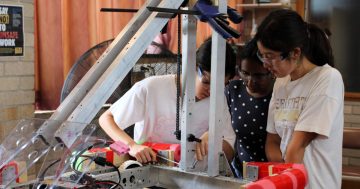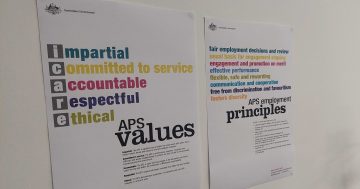Ashley Stahl* believes the attitudes of Millennial workers are undergoing change as they move further along life’s journey.
 The Millennial generation now makes up one-third of the workplace. This generation has begun to step into parenthood, and has been in the workforce just long enough to forget what a university summer vacation feels like.
The Millennial generation now makes up one-third of the workplace. This generation has begun to step into parenthood, and has been in the workforce just long enough to forget what a university summer vacation feels like.
What does this coming-of-age shift mean for employers?
Well, along with the transformation to adulthood, Millennials have begun to find value in different job attributes.
A recent study of Millennial employees found that 61 per cent of participants hold the job they have for reasons other than it providing meaningful work, something this generation was originally coined as prioritising.
This generation’s needs are eclipsing their wants… So it’s time to do a refresh on what Millennials actually want from their jobs, in this stage of their journey.
Pay does matter
When asked what would help a job be more fulfilling, 87 per cent of Millennials said higher pay.
This is surprising to hear coming from the generation who once said they would be willing to work for less money in exchange for more meaningful work.
Nonetheless, this honesty about compensation may be a result of having spent the last decade being largely under-paid, and swimming in debt incurred from their university days.
Four out of 10 Millennials say their day-to-day expenses like groceries, childcare, and utilities are the main reasons they carry around credit card debt.
Millennials are beginning to realise they need a salary that will properly support them, and keep them out of debt.
Employers need to realise their failure to compensate employees at a rate that caters to their basic living expenses is a flight risk. After all, losing talent is pricey.
Work-life balance is becoming more valuable
As discussed above, Millennials are starting families and have had to adjust their life priorities.
Not only are they having children, but their parents have begun to reach an age where they may be in need of additional logistical help in order to stay healthy.
In my career coaching business, a client with a newborn child recently shared that her current employer expected her to be available online even after the workday ended.
That meant she needed to juggle breastfeeding her new baby, putting it to bed, and typing on her laptop.
Needless to say we set out to find her a role that would keep her career moving forward while honouring her new family life.
This pull towards family values has only bolstered Millennials’ desire for a work-life balance.
In order to accommodate this, organisations need to put an emphasis on flexible work hours, remote positions and becoming more progressive with how they structure a typical workday.
Take a poll with your current team members to gauge where you fall in meeting their work-life needs.
Consider having a work-week schedule with four 10-hour days, remote work days for everyone or adjusting working hours.
Every organisation has needs, but so do the employees.
They want more respect
It’s pretty easy to say Millennials have gotten a bad rap.
They are known as the job-hopping generation, as well as a group that has been called lazy and entitled.
Wouldn’t any generation who faced a possible recession with low job options be job hoppers who were uninspired and hoping for more?
Roughly 28 per cent of Millennials blame these labels for their feelings of disrespect, and this sentiment damages their connection to their organisation.
Millennials respect authority, but they respect it most when it is earned, not forced upon them.
This might be a hard pill to swallow, but if you want the largest generation in the workforce to work for you, create a relationship with them based on mutual respect.
Put an emphasis on training your leadership team, and managers.
A surprising 58 per cent of managers have reported not receiving any management training when they took on their position.
Times have begun to shift for this giant generation, and with it, so do the employers that support them.
It’s time to shift focus away from the free snack bars, and start honing in on this generation’s more adult demands.
If you don’t, it’ll cost you way more than you think.
*Ashley Stahl is a career coach, keynote speaker, podcast host and author. In a previous life she was award-winning counter-terrorism professional. She can be contacted at ashleystahl.com.
This article first appeared at forbes.com











